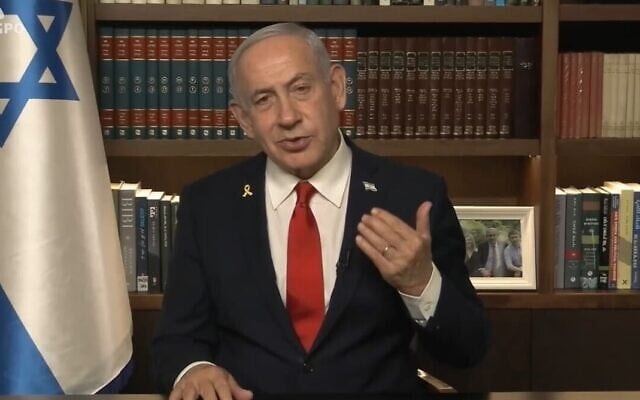Negotiations with Hamas fail, Israel considers occupying the entire Gaza Strip?
Israeli Prime Minister Benjamin Netanyahu is said to have informed his cabinet ministers of his intention to seek support for a plan to completely occupy the Gaza Strip, despite opposition from the Israel Defense Forces (IDF). This information was published by Israeli media on August 4 (local time).

Internal disagreement
The move marks a significant shift in the Israeli government's stance, coming shortly after the collapse of US-backed ceasefire talks in Doha, Qatar, which had aimed to reach a 60-day truce in exchange for Hamas releasing half of its hostages in exchange for Palestinian prisoners.
Israeli media quoted a senior official close to Mr Netanyahu as saying: "The boat is already set - we will occupy the entire Gaza Strip... Operations will be carried out even in areas where there are hostages. If the IDF Chief of Staff does not agree, he should resign."
Currently, the IDF claims to control about 75% of Gaza. Under the new plan, the army would have to occupy the rest, bringing the entire strip under Israeli control.
However, Prime Minister Netanyahu's plan is facing deep concern from the military. Many sources said the IDF opposes the idea because it believes that completely destroying Hamas' infrastructure could take years and plunge the army into a costly "war of attrition".
More importantly, military officials fear that expanding the operation could directly endanger the lives of the approximately 20 hostages believed to still be alive. An attack on the detention area could have catastrophic consequences.
IDF Chief of Staff Lieutenant General Eyal Zamir is reportedly growing increasingly frustrated with what he describes as the political leadership's "lack of strategic clarity."
An IDF spokesman declined to comment on the report but said the military always has operational plans in place.
Meanwhile, hardliners in the ruling coalition, including Finance Minister Bezalel Smotrich and National Security Minister Itamar Ben-Gvir, want to go further, calling for military rule, annexation and the reestablishment of Jewish settlements in Gaza.
Background and numbers
The conflict erupted in October 2023 after a surprise Hamas attack on southern Israel that left around 1,200 people dead and 250 hostages taken. There are still around 50 hostages missing, of whom less than half are believed to be alive.
Israel's response has caused widespread devastation in Gaza, with health officials saying at least 60,000 people have died.
In response, the international community, including Qatar, Egypt, France and Saudi Arabia, is pushing for a two-state solution. Hamas has said it will not lay down its weapons but is open to the possibility of handing over Gaza to a non-partisan body.
Speaking to the press, Israeli Foreign Minister Gideon Saar admitted: "We want all the hostages to return. We want to see this war end... But of course, the big question is, what will be the conditions for ending the war?". The differences in views between the parties are still too great to find a common solution in the near future.


